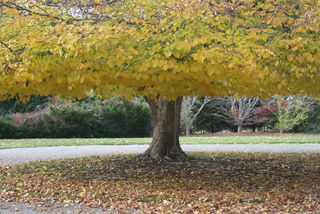Environment
Thoreau: The Video Game
Can a cybernetic Walden Pond truly mimic a quiet walk in the woods?
Posted March 3, 2017

“Live in each season as it passes; breathe the air, drink the drink, taste the fruit, and resign yourself to the influence of the earth.”
These lines from Henry David Thoreau’s Walden, published in 1854, summarize what the transcendentalist writer was seeking when he spent two years living in a cabin in the woods by a pond in Concord, Massachusetts.
The book, with its emphasis on open, hands-on interaction with nature, has come to symbolize the ideal of retreat from the hectic, largely urban environment of industrial- and information-age life.
But those of us addicted to constant and instantaneously gratifying information devices need no longer fear exclusion from the peaceful fruits of a Walden lifestyle.
"Walden, a game," by GameInnovationLab, a research unit of the University of Southern California, offers players the chance to “follow in [Thoreau’s] footsteps, surviving in the woods by finding food and fuel and maintaining their shelter and clothing.
“At the same time,” the game’s site continues, “players are surrounded by the beauty of the woods and the Pond, which hold a promise of a sublime life beyond these basic needs. The game follows the loose narrative of Thoreau’s first year in the woods, with each season holding its own challenges for survival and possibilities for inspiration.”
Why the hell not? Personally, though I live maybe 70 minutes from the actual, physical, Walden Pond, which has been preserved by the state of Massachusetts as a conservation area, I have never visited the place. Moreover, I live in a Cape Cod village, half a mile from a beach and a ten-minute drive from quiet, lovely woodland conservation areas, and I don’t even find the time to take a walk in those environments.
Soon, for $18.95 (the game comes out in time for the 200th anniversary of Thoreau's birth July 12), I won’t have to get up from my chair or leave my work table. I can click away from whatever work I’m doing, boot up "Walden: The Game," and not only stroll around with Henry David, but learn stuff about birds and trees as well—and then, ten minutes later, when I realize I’m still under deadline, I can log out and get right back to work; all without moving more than my eyes and fingers.
When I clicked on a clip furnished via Salon by USC, in which I walked down a forest path in autumn and spring accompanied by peaceful, synthesized New Age music, I experienced a very mild, pastel-hued sensation of ease and peace, and learned something about bluet flowers and perch. It wasn’t a walk in the woods, exactly—I still felt that neurasthenic microjag I always feel while messing with the laptop screen—but it pulled me away, slightly, from my daily rush.
But (of course this paragraph has to start with an opposition) the whole idea of a video game mimicking what Thoreau specifically intended to be a glorification of direct experience of the natural world smacks of anathema; the equivalent, perhaps, of trying to mimic a Google search by creating an actual, living garden based on floral 1s and 0s.
Already our lives have changed to accommodate the hyperspeed, addictive effects of constant, instantaneous information, and video games of any kind only accentuate such change. Though gaming can have a positive influence, multiple negative side-effects have also been recorded among obsessive players; there is even strong evidence that suggests, by relying on stimulus-response areas of the brain, video games allow the hippocampus to atrophy, which increases our chances of developing neurological disease.
In fact, the game’s creators don’t bill it as a substitute for mooning around your nearest park or woodland. The site claims: “It is not our hope that the game would ever replace reading the book of Walden, or taking a lovely walk outdoors, or getting closer to nature in any way. We hope the game is actually a path for more people to find their way back to Thoreau, and to nature, and to be inspired to think more deliberately about the choices they make about life and how to live it simply and wisely.”
In a society where we spend over ten hours a day on the screen, perhaps "Walden: The Game," practically speaking, is not such a bad idea after all.




